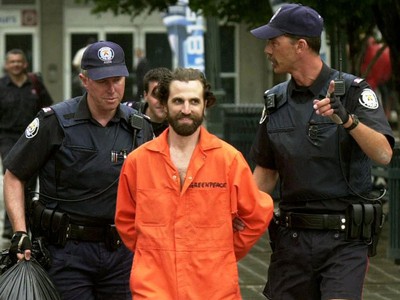Canada, the country of maple syrup and hockey, is the world’s the third largest emitter of greenhouse gas emissions per capita. It is clear that Canada needs to change its approach to climate change. With growing pressure on the Canadian government to take tangible steps in the effort to fight climate change, the position of Minister of Environment and Climate Change Canada has been shuffled to the Liberal MP Steven Guilbeault.
This is Guilbeault’s second term in office, where he is once again representing the Montreal riding of Laurier—Sainte-Marie. A new minister doesn’t always mean change, but this one might. Unlike his predecessors, Guilbeault presents himself as an environmental activist first and a politician second. This is a claim he has no shortage of evidence to back up.
In fact, this appears to be his selling point – as Trudeau’s popularity wanes, the Liberals offer a new charismatic French Canadian with wide-eyed hopefulness and promises of a better Canada rolling off his tongue.
Guilbeault has quite the record of environmental activism. He began young, when at age five he camped out in a tree in an attempt to prevent a land developed from clearing the woods near his home. Though his efforts that day ultimately failed, it kickstarted a pattern of activism stretching into the next decade and a half of his life.
In university, he was heavily involved in student-run social activism groups, including Public Interest Research Group (GRIP) and University Student Federation of Quebec (FEUQ). During this time, he worked with the Canadian Human Rights Foundation (1992-1993) and ultimately co-founded an environmental sustainability non-profit, Équiterre (1993).
His real claim to fame however comes from his brief stint in radical activism. After joining Greenpeace, managing the Quebec climate-change division (1997), he made national headlines in 2001 when along with fellow activist Chris Holden, he climbed the CN Tower and hung a banner reading “Canada and Bush Climate Killers”. This was to protest Canada and the US’s failure to ratify the Kyoto Protocol Agreements, an international effort to reduce greenhouses gas emissions. He was arrested and charged with mischief for this stunt, earning him the moniker “Green Jesus of Montreal” from LaPresse newspaper
Having discovered that orange was not his colour, he pivoted, launching into an active, albeit quieter career working as a strategic consultant in the clean tech industry (2009-2019). During this time, he worked adjacent to politics by lending his environmental expertise to a number of private boards and government advisory committees, before finally throwing his hat in the ring for the 2019 federal election.
Because of his impressive history, Guilbeault faces little criticism about his qualifications with respect to environmental policy. Most of the backlash he has faced to date stems from his history of ‘radical activism’ and his short but messy political track record.
This past year as Minister of Heritage (2019-2021) he championed Bill-C10, which aimed to expand the current broadcast regulations to apply to streaming web giants such as Netflix, Spotify, and YouTube. The execution led to confusion and controversy within the general public as some accused the bill of violating free speech and privacy rights of Canadians. It passed the House of Commons, but died in the Senate in the wake of the recent federal election. This leaves some questioning whether his political skills are up to the job.
The appointment of a Minister who aspires to dramatically change Canada’s climate-change policies –and as a result Canada’s oil industry— unsurprisingly stirred the pot with members of the Conservative party. Alberta Premier Jason Kenney was one of the many up in arms about the new Minister and was quoted saying Guilbeault’s “personal background and track record” on climate and oil and gas sends a “very problematic” message about Alberta’s future.
The sentiment that Guilbeault represents significant change was shared by environmental activists as well, who instead of concern, express hopefulness that he will dramatically restructure Canadian environmental policies. He is also backed by pragmatists like Monica Gattinger, director of the University of Ottawa’s Institute for Science, Society and Policy, who commented that it would be impossible for Canada to develop climate and energy policies in isolation as the Conservatives suggest.
While the theme of Conservative rhetoric is clear that Guilbeault will be too extreme, there are others that argue that he is not extreme enough. According to Équiterre co-founder Laure Waridel many people perceive him to be “not radical enough” and” too quick to compromise”. A prime example of this criticism is that despite having a personal history of opposition to the Keystone XL pipeline, he became a member of the Liberal Party, the very Party that pushed for it.
The recent UN climate conference COP-26 indicates there is change in the works: Guilbeault announced that the federal government plans to allocate a minimum 20 percent of the international climate finance commitment budget to limit biodiversity loss, totalling approximately $1.1 billion dollars over the next five years. This follows Trudeau’s announcement that Canada will “cap oil and gas sector emissions today and ensure they decrease tomorrow at a pace and scale needed to reach net-zero by 2050”.
What difference, if any, this new minister will make is yet to be seen: with his history of bold environmentalism and extensive experience in environmental policy Guilbeault has potential. Whether can hold his own in the political sphere will likely be the deciding factor, but he could very well spur the change that many Canadians are hoping for.





Leave a Reply